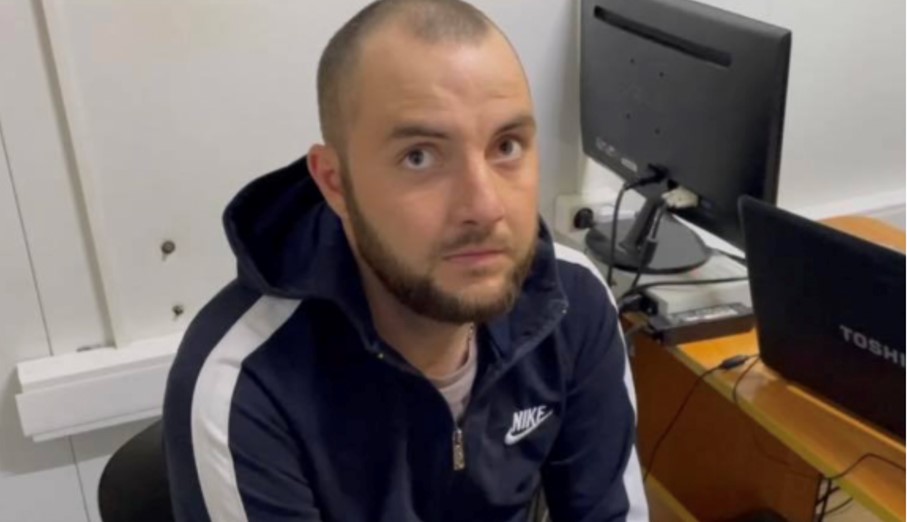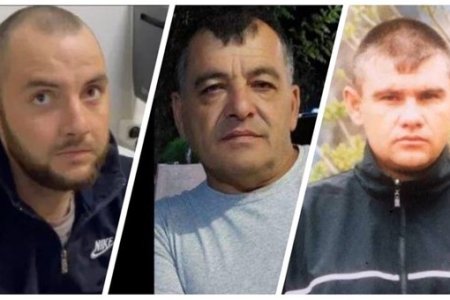
Russia has not stopped its torture of Rustem Osmanov, a recognized Crimean Tatar political prisoner who was sentenced to 6 years on legally nonsensical charges based almost solely on a ‘confession’ extracted through torture and threats to kill his family. The Ukrainian citizen was accused of having been a member of a totally legal organization engaging in legal activities on Ukrainian territory.
According to the Crimean Human Rights Group, Osmanov reported three weeks ago that the prison colony guards regularly beat him and threaten to kill him. He has already been held for three weeks in a SHIZO, or punishment cell, and the prison administration are refusing to provide this lawyer without any information about his state of health.
If torture was applied to get Osmanov to ‘admit to’ involvement in the Noman Çelebicihan Battalion, it is quite likely that he was never a member. Involvement in the Battalion, however, would not make him any less a political prisoner as there was nothing illegal about such activity. This is in marked contrast to Russia’s behaviour in abducting Osmanov from his home in Kherson oblast, torturing him and putting him ‘on trial’ under Russian legislation.
The illegality of both Russia’s use of its legislation on occupied territory and of the specific charges against Osmanov was among multiple reasons why the authoritative Memorial Support for Political Prisoners Project recognized Osmanov as a political prisoner back in May 2023. Memoiral stressed that the charges against the young Crimean Tatar had been illegal, and based solely on his political views, his Ukrainian citizenship and the fact that he is a Crimean Tatar. They had also been based on fabricated evidence.
Osmanov was 26 and living in Tavriiska, a village in Kherson oblast, when he was seized by the Russians. The FSB claimed that he was detained in Armyansk on 14 April 2022 while trying to cross into occupied Crimea and that they had received information the previous month that he had been active in the Noman Çelebicihan Battalion back in 2016.
As reported here, Osmanov has given a quite different account of what was, in fact, an abduction by the Russians from his home in Kherson oblast. In a letter made public by the Crimean Human Rights Group, Osmanov explained that 12 men in Russian military uniform and brandishing machine guns had burst into his home on 15 April 2022. They had hit him and forced him to the ground, before putting a bag over his head, handcuffing him and forcing him into a freight vehicle where they continued to beat him. They had then taken him to the administrative border with occupied Crimea. It was in a carriage there, he said, that the Russians had threatened him and tried to force him into giving false testimony. When he refused, they then threatened to kill not only him, but members of his family, if he didn’t write what they told him.
“I was beaten there, and they used electric currents, taking advantage of my helplessness. On threat of death, they forced me to sign the testimony they needed, after which they sent me to the special bloc in SIZO [remand prison] No. 1. Through fear that they would kill my family and myself, I was forced to concealed truthful information. Please take measures to help return me to my homeland, to Ukraine and to also provide assistance to my relatives.”
Russia stepped up its illegal persecution of Crimean Tatars or, occasionally, other Ukrainians on flawed charges linked with the Noman Çelebicihan Battalion after its full-scale invasion of Ukraine with the victims often men who had been abducted from occupied parts of Kherson oblast. In Osmanov’s case, the FSB asserted that Osmanov had “in 2016, while on Ukrainian territory, voluntarily joined the [Noman Çelebicihan] Battalion where he provided food, other items, for the Battalion’s activities, and also took part in its militarized defence.”
There was no militarized defence’, only the peaceful Noman Çelebicihan Battalion which, despite its name, was not an armed formation, and is legal in Ukraine. The Battalion was founded by Crimean Tatar activist and businessman Lenur Islyamov on 1 January 2016, with the first members people who had taken part in the civic blockade of occupied Crimea. This blockade was initiated by Crimean Tatar leaders Mustafa Dzhemilev and Refat Chubarov, together with Islyamov, on 20 September 2015. The blockade demanded an end to all trade, and supplies of electricity to Crimea while it remained under Russian occupation. There were initially very specific human rights demands, including an end to the political repression and restrictions on the media which Russia had brought to Crimea, and much more. Such a total blockade should have been imposed back in April 2014 when Ukraine rightly stopped providing water to occupied Crimea.
While the Battalion and its members undoubtedly saw their ultimate objective as the end to Russia’s illegal occupation of Crimea, its members simply promoted the goods and energy blockade and provided backup for Ukrainian border guards in areas near the administrative border with occupied Crimea. The Battalion had effectively ceased to exist before Russia’s Supreme Court in June 2022 declared it to be a ‘terrorist organization’ and banned it on the territory of the Russian Federation and on any Ukrainian territory illegally under its occupation. It was feared that the ruling would, like an earlier ruling about Hizb ut-Tahrir, a transnational Muslim organization which is legal in Ukraine, be used to justify horrifically long sentences on ‘terrorism’ charges. At present, the sentences have not increased, only the number of those facing the charges. Like others since 2018, Osmanov was charged under Article 208 § 2 of Russia’s criminal code with “taking part in the activities of an illegal armed formation, acting on the territory of a foreign state for purposes which are against the interests of the Russian Federation”. Although claims are generally made that those arrested were trained in using weapons, these are only ever backed by anonymous ‘witnesses’ who may well have never known the person on trial.
Memorial points out that the entire ‘case’ against Osmanov was based his supposed ‘confession’, obtained through duress, and on two alleged witnesses, both of whom are supposedly former members of the Battalion. One of these men had, purportedly, ‘turned himself in’ to the Russian authorities and ‘admitted his involvement’, thus avoiding criminal prosecution. The other is imprisoned and, therefore, under total control of the prison authorities, who can make his life particularly hellish if he refuses to provide the ‘testimony’ demanded.
Memorial further notes that both these individuals have been used for several such prosecutions, with the ‘investigators’ effectively just changing the name of the person accused
Memorial also stresses that Osmanov’s involvement in the Battalion was not proven, but that, in any case, involvement in no way constitutes a crime
Despite the glaring illegality of the charges and the lack of real evidence, Osmanov was sentenced by the occupation ‘Bilohirsk district court’ on 19 August 2022 to six years’ imprisonment. The ‘prosecutor’ in this shameful case was Petro Popov, the ‘judge’ – Igor Sokolovksy.
The Crimean Human Rights Group learned, back in January 2023, that the prison authorities in Russia were trying to force Osmanov to take Russian citizenship and be ‘mobilized’, with this meaning that he would be sent to fight against his own country and fellow Ukrainians. Memorial has asserted that Osmanov did have an out-of-date Russian passport, however, if this was the case, it is unclear when it was obtained. Although originally from Kurske in Crimea, the young man (b. 5.09.1996) was living, with his wife, in Tavriyska (Kherson oblast) when hie was abducted.



